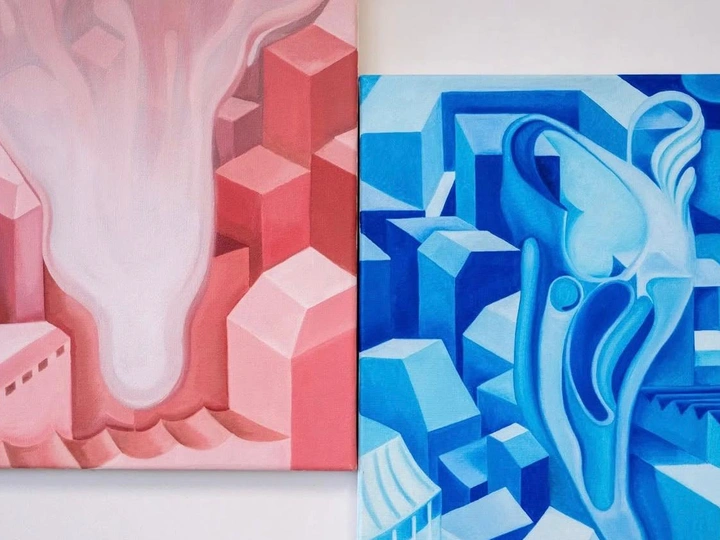"Towards a Sensitive Theory of Cities"

Jacopo Grilli
Jacopo Grilli (Milan, 1991) is an urbanist and multidisciplinary artist based in Amsterdam. His practice moves across fine art, architecture, and urban research, reflecting on spatial and social issues through a language of drawing, painting, performance, and site-specific explorations.
Trained in urban planning at Politecnico di Milano and urban design at the Amsterdam Academy of Architecture, Jacopo began his career at West 8 and BURA Urbanism (2015–2020), contributing to various international projects. Since 2020, he has pursued a more autonomous artistic path under the label Art of Cities, exploring the city as both subject and medium—simultaneously a container of memory and a generator of new imaginaries.
His research-based work focuses on the sensorial, cultural, and human aspects of the urban realm, using intuitive and phenomenological approaches to explore themes like identity, transformation, ecology, and perception. His projects open speculative dimensions where emotion and perception become agents of urban change.
Jacopo has participated in residencies such as Architect in Residence at ARCAM and Sensitive City. His work has been shown in solo and group exhibitions across the Netherlands, including Arti et Amicitiae (Amsterdam), Concordia Kunstruimte (Enschede), and the 2022 International Architecture Biennale Rotterdam.
He frequently engages in interdisciplinary collaborations that merge urbanism with other creative practices, exploring the relationship between space, movement, sound, and visual storytelling. These collective projects expand the boundaries of urban research, blending methods from choreography, sound design, and media.
Jacopo is also a guest teacher at the Academies of Architecture in Amsterdam and Rotterdam, continuing to bridge disciplines through drawing, modeling, video, and performance to explore new forms of spatial storytelling and collective imagination.
In contrast to data-oriented design solutions that dominate contemporary urbanism, this proposal introduces a sensitive theory of cities—an approach grounded in phenomenology, sensory experience, and emotional intelligence. It does not aim for immediate realization but offers a speculative and rigorous investigation into how cities can be reimagined through care, perception, and embodied knowledge. It asks how urban environments might reflect the richness of lived experience and respond to today’s social and ecological urgencies.
The project arose from dissatisfaction with reductive, efficiency-driven models of urban development. In the face of environmental degradation, social inequity, and cultural alienation, the sensitive city framework calls for a return to complexity, ambiguity, and emotional depth. It understands space not only as a physical structure but as something lived, remembered, and interpreted. Sensory elements—light, sound, texture, smell—shape our experiences of place, while sensibility enables us to reflect, judge, and form ethical responses to our environments.
This theory combines artistic research, phenomenological observation, and participatory tools such as soundwalks, sensory mapping, and narrative inquiry. These methods uncover hidden layers of urban meaning, offering insight into how people relate to their surroundings. One project explored bodies of water as emotional and symbolic connectors in the urban landscape, inviting reflection on memory, fluidity, and belonging.
Rather than prescribing solutions, the sensitive city cultivates new dispositions: listening, slowness, and care. It questions the dominant logic of growth and promotes a multispecies awareness of shared space. It encourages urban design to embrace not only what is seen or measured, but also what is felt. In doing so, it expands the field of urban knowledge and invites new ways of living, feeling, and imagining together.